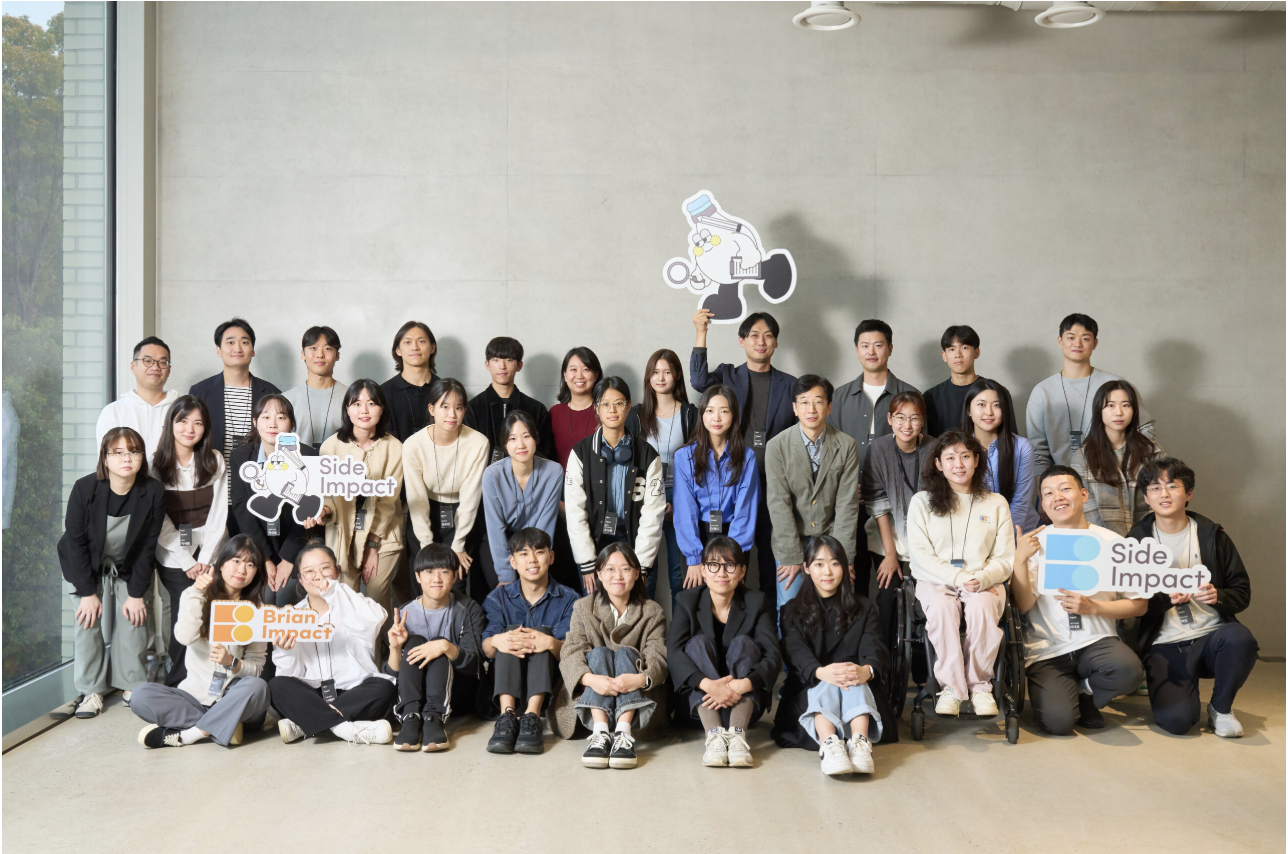

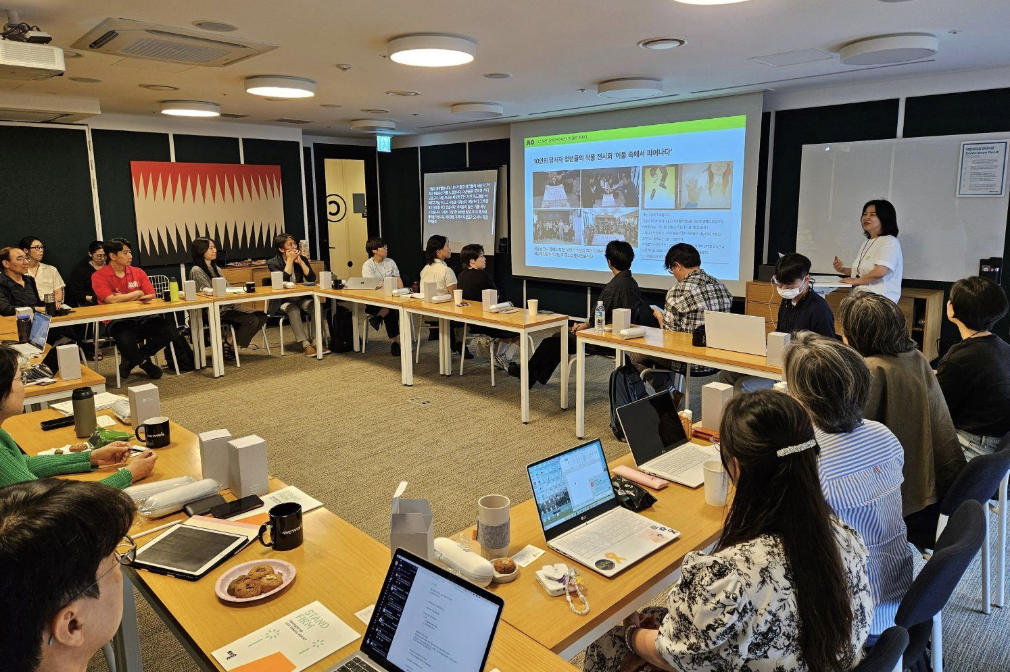
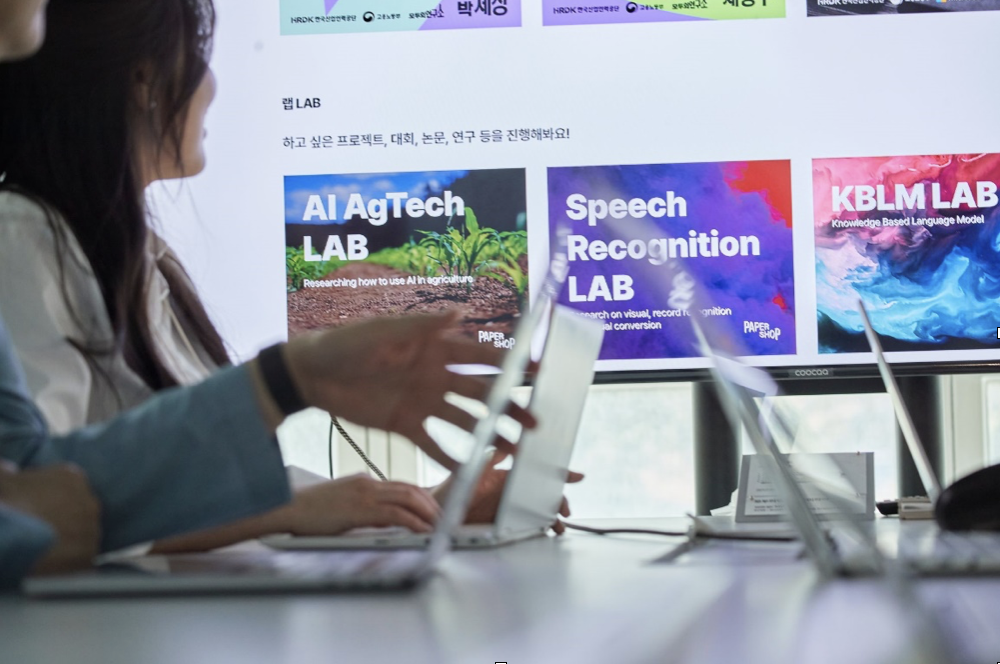
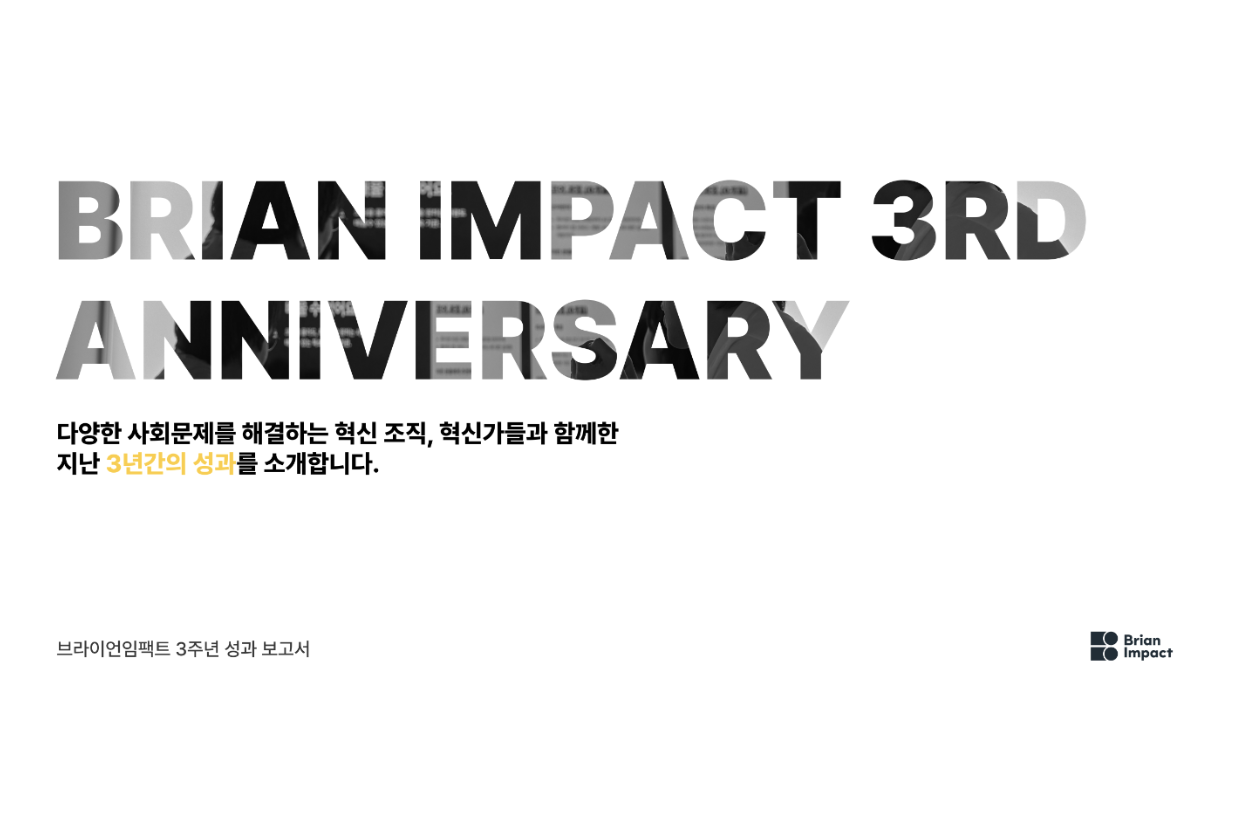
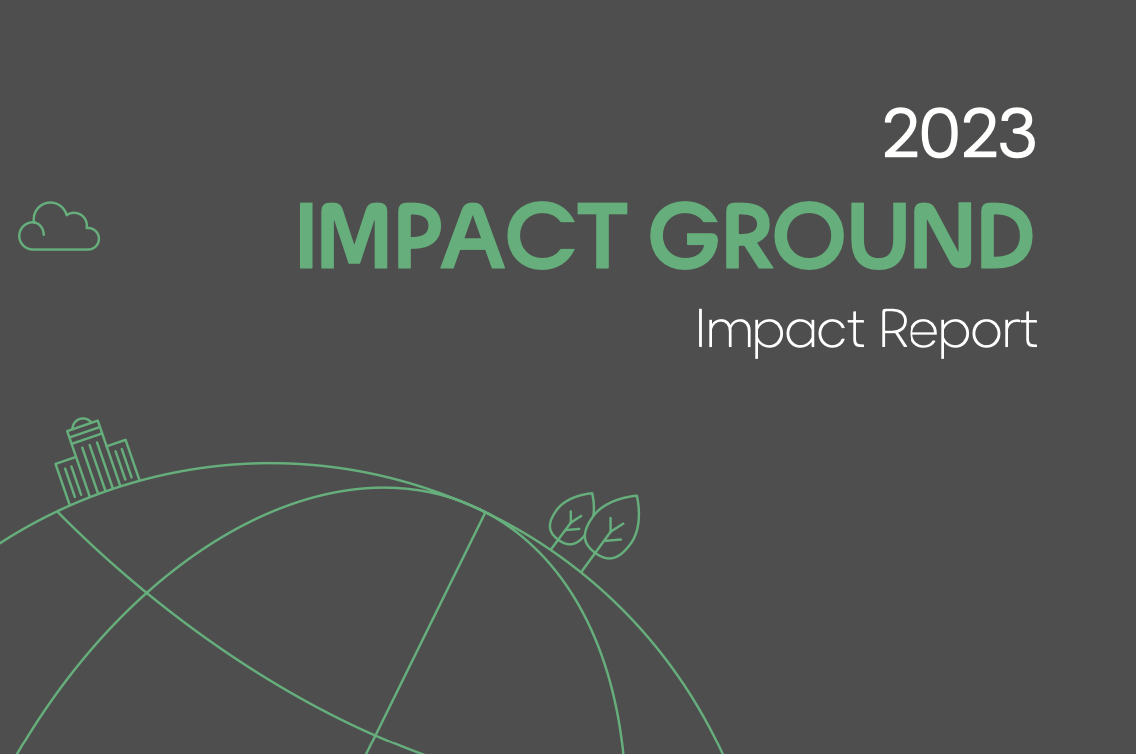
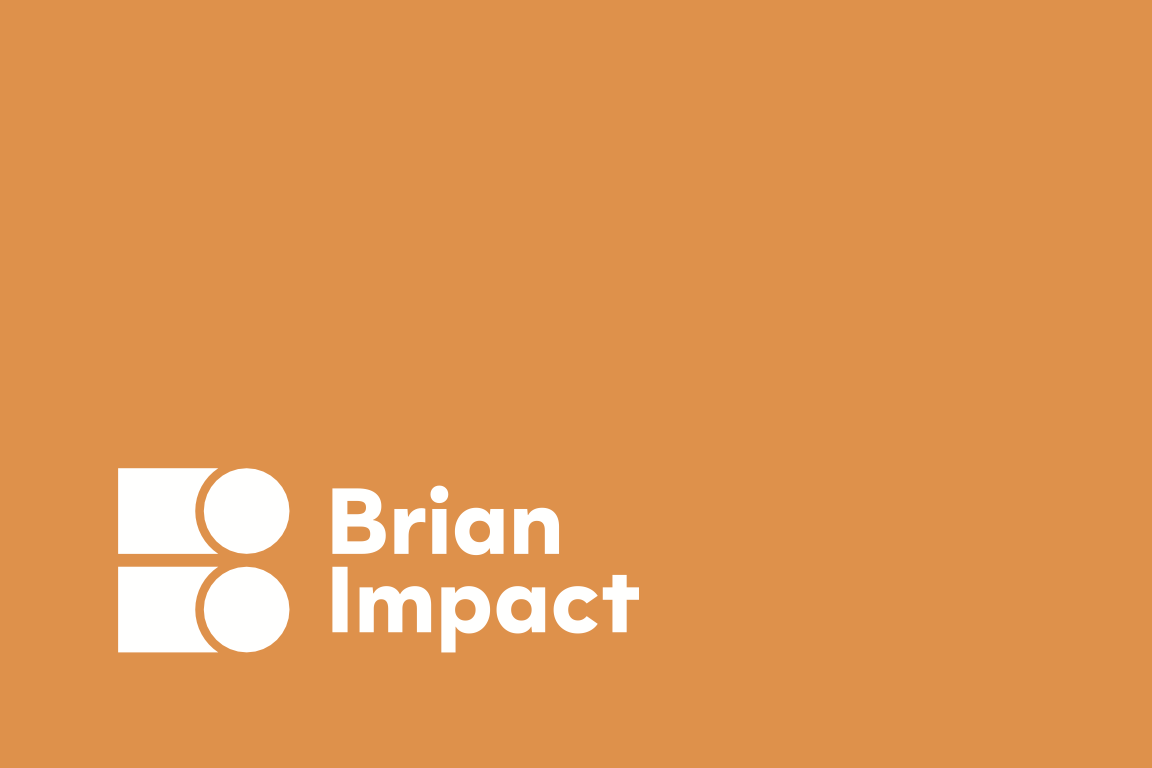

Social Impact
As one of the Foundation’s first programs, Impact Ground promotes a sustainable ecosystem for the ‘social impact’ sector by sponsoring innovative non-profit organizations that make fundamental system changes to complex social problems.
As of 2023, the Foundation has donated a total of 20 million US dollars to 21 institutions. The grants were provided accordingly based on each organization’s size and gravity of needs. Also, these grants are characterized as ‘unrestricted’ and ‘trust-based’, meaning that organizations get to decide how and where to use the funds most effectively.

Social Impact
Brian Impact Foundation believes in the power of innovative, courageous individuals in all kinds of fields - climate/environment, gender, human rights, science, education, public health, animal rights, civic society. Brian Fellows are the very people who strive to make differences in the everyday life, and the Foundation supports these individuals through various means, including financial, infrastructural, relational, and more.
There are currently over 40 elected Brian Fellows, of whom the Foundation will continue to be a reliable running mate.

Tech
Brian Impact Foundation actively supports network activities of groups within the fields of science and technology, including those that employ multi-disciplinary approaches, as an effort to grow communities that work on social problems using scientific, technological methods.
Following are select examples:
- “Rookies” : a community for public school teachers who code
- “Sluggish Hackers” : a place where the civic sector meets the tech
- “Code for Korea” : a community for civic hackers in Korea

Tech
Led by a prominent epidemiologist, Seung-Sup Kim (MD, MPH, ScD at Seoul National University), DiSEPA is a 20-year long-term cohort study on three different populations - people with physical disabilities, people with developmental disabilities, and their parents -, which aims to understand the social environment and health of people with disabilities and their family members in South Korea. The study employs a comprehensive approach from qualitative research, epidemiological research, to biomarker analysis. Brian Impact Foundation is committed to fund the research with 3 million US dollars for the first 5 years.
(As of Dec. 2024 exchange rate)